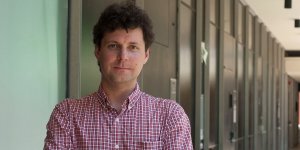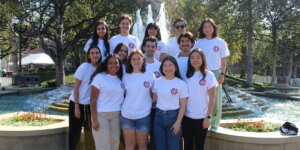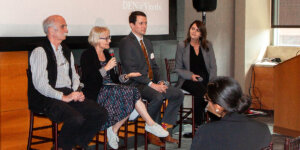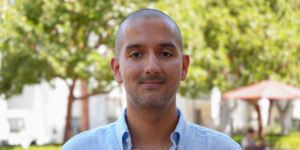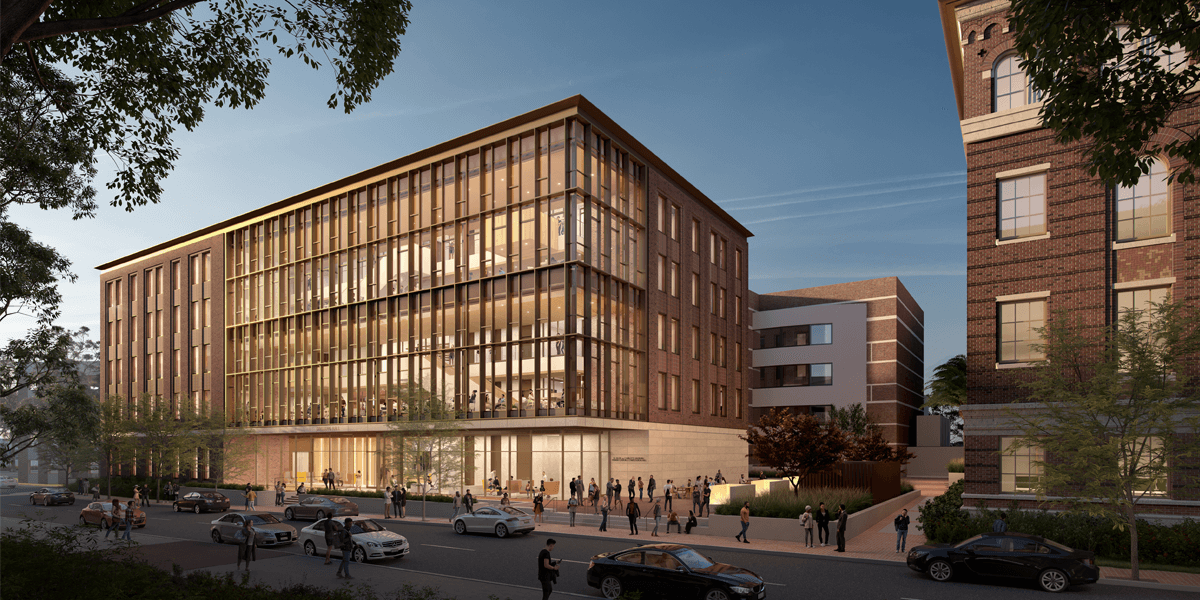
Opening in spring 2024, the Dr. Allen and Charlotte Ginsburg Human-Centered Computation Hall, a 116-000-square-foot LEED-Platinum certified facility, will become a centralized hub for the USC computer science community.
The University of Southern California’s Department of Computer Science is marking a new era with a new name—the USC Thomas Lord Department of Computer Science, in honor of benefactor Thomas Lord.
The naming gift is part of the Frontiers of Computing, a $1-billion-plus, multiyear initiative which unites USC’s leadership in computing research and education across disciplines, with a focus on artificial intelligence and machine learning, data science, blockchain and quantum information, among others.

Nenad Medvidović, chair of the Thomas Lord Department of Computer Science. Photo/Emilia Doda.
This 10-year effort further positions the university as an indispensable resource to address the complex challenges facing society, from health to climate change.
The department will be housed within the initiative’s newly announced School of Advanced Computing, a unit of the Viterbi School of Engineering. The new school will enhance educational opportunities in computing for students across the university, support new research and expand USC’s footprint in Silicon Beach.
“As a department, we are proud to have been at the forefront of technological innovation for half a century, and this investment will allow us to continue to push technological boundaries,” said Nenad Medvidović, who was named department chair in July 2022.
“This new funding will allow the department to continue attracting top students and faculty with diverse backgrounds and interests, and to ambitiously expand the scope of our educational and research efforts to make positive changes, from our Los Angeles home to our global community of students, alumni and collaborators.”
Expanding footprint
With a long-standing reputation for excellence in research and education, and in strong partnership with the Information Sciences Institute and the Institute for Creative Technologies, the department is consistently ranked as one of the top computer science departments in the country and its faculty members are leaders in their fields.
USC researchers past and present have pioneered fundamental technological breakthroughs, including the internet’s Domain Name System; the invention of DNA computing; the “cost constructive model” for software cost estimation; the world’s first five-fingered robot; and socially assistive robots, or “robots that care.”
The gift also exemplifies the university’s commitment to preparing students to succeed in a rapidly growing and evolving field.
In a comparison of private research universities, USC confers annually the largest number of computer science degrees, and it ranks third in federal computer science research and expenditures, according to the U.S. Department of Education’s National Center for Education Statistics.
Today, with more than 5,400 students at undergraduate, master’s and Ph.D. levels, the Thomas Lord Department of Computer Science is one of the largest and fastest growing on campus.
To meet student demand and expand research capacity, the department recently welcomed 11 new faculty members to its ranks, bringing the total number of faculty members to a count of 90. Medvidović said the department will further develop key areas of strength, such as artificial intelligence and robotics, and will spur further research in areas such as human-computer interaction, computer security, and the internet of things (IoT). Equal representation will continue to be a top priority: 45% of the department’s incoming undergraduate students are female.
Last but not least, the department will soon have a new building. Opening in spring 2024, the Dr. Allen and Charlotte Ginsburg Human-Centered Computation Hall, a 116-000-square-foot LEED-Platinum certified facility, will become a centralized hub for the USC computer science community and other experts from numerous disciplines across the university.
“The rapid growth in computer science and the opportunities it opens demand that we act as both trailblazers and stewards,” said Medvidović. “Our research results and future generations of graduates will not only push the boundaries of knowledge and technology, but also focus on responsibly serving the growing needs of society.”
Published on May 4th, 2023
Last updated on May 16th, 2024




